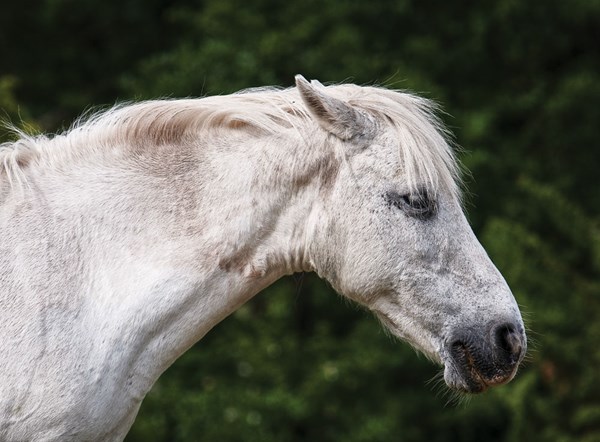 Horse owners often pick up on a horse’s cranky mood from his body language, and the latest research is showing that horses can also tell when a human is angry based on facial expressions. | © Paula Da Silva/Arnd.NL
Horse owners often pick up on a horse’s cranky mood from his body language, and the latest research is showing that horses can also tell when a human is angry based on facial expressions. | © Paula Da Silva/Arnd.NLYou’ve learned how to read your horse’s facial expressions and body language. You know the difference between ears front and forward versus laid back, the significance of a cocked hind leg and more. But can your horse read your facial expressions? Yes, says a research team co-led by doctoral student Amy Smith and professor Karen McComb, both based in the School of Psychology at the University of Sussex in England.
The study selected 28 horses from area riding stables and showed each horse two photographs of an unfamiliar male face, one image showing a happy expression and one angry. During the trial, one researcher held a horse on a lead line, standing at the horse’s left shoulder and facing away. A second team member presented the photos on a board and stayed hidden behind the board, which was held at wither height. This researcher held the board approximately 3 feet from the horse’s nose for 10 seconds, slightly closer for 10 seconds, and then back to the original position for another 10 seconds.
Researchers videotaped the trials and reviewed each horse’s behavioral and heart-rate responses before, during and after viewing the images. Behavioral responses included how long the horse looked at the image, any indications of approaching or avoiding the images, and any stress-related responses. The trial was repeated on each horse about two months later with new images using a different male model.“The reaction to the angry facial expressions was particularly clear,” says McComb. “There was a quicker increase in [the horses’] heart rate, and the horses moved their heads to look at the angry faces with their left eye.” A left-eye viewing bias has previously been associated with negative or threatening stimuli, and the increased heart rate indicates stress.
The results of the study indicate that horses can read emotions across the species barrier—something never previously documented.
“We have known for a long time that horses are a socially sophisticated species, but this is the first time we have seen that they can distinguish between positive and negative human facial expressions,” says Smith.
The fact that the horses had a less discernible reaction to happy expressions could indicate that it’s more important for them to recognize potential threats with an angry face possibly acting as a warning sign of potential negative human behavior. Individual horses may also have learned from experience how to interpret human expressions.
The researchers believe the study findings can be valuable in helping to understand interspecies communication—specifically the ability of other species to recognize our human emotions.—Sushil Wenholz
This article originally appeared in the September 2016 issue of Practical Horseman.
Save






